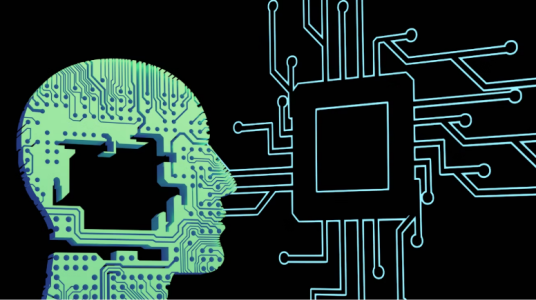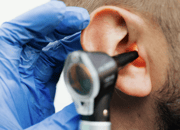AI may soon help doctors catch Parkinson’s sooner
- Replies 0
Is it possible that a smile could help detect one of the most complex neurological diseases of our time?
That’s the question at the center of a new study using artificial intelligence (AI) to screen for Parkinson’s disease.
Published in the New England Journal of Medicine, the research outlines how short, self-recorded videos of people smiling could allow AI to detect early signs of Parkinson’s with remarkable accuracy.
As more people face barriers to specialized neurological care, this method could reshape how and when the disease is diagnosed.
Parkinson’s disease (PD) is a progressive disorder often marked by motor symptoms like tremors and stiffness, but one of its earliest signs is often facial masking or “hypomimia.”
This refers to the reduced ability to show facial expressions due to muscle rigidity, making the person appear less expressive.
Diagnosing PD usually requires in-person assessments with neurologists, a resource not evenly available across geographic and socioeconomic lines.
This leads to significant delays for many patients who need timely diagnosis and care.

The study was led by Tariq Adnan, M.Sc., and used videos submitted by 1,452 individuals, including 391 with a confirmed Parkinson’s diagnosis, from North America and Bangladesh.
Participants were asked to record themselves mimicking facial expressions, particularly smiling, using an online platform.
The AI model analyzed “facial landmarks” and “action units” to measure hypomimia in a standardized, quantifiable way.
As Adnan stated in the study, “Smiling videos can effectively differentiate between individuals with and without PD, offering a potentially easy, accessible, and cost-efficient way to screen for PD, especially when access to clinical diagnosis is limited.”
Also read: AI chatbot says “yes” to marriage proposal!? How this man reacted will shock you
Trained solely on smile videos, the AI achieved an overall accuracy of 87.9% in identifying Parkinson’s cases, using 10-fold cross-validation.
It also demonstrated a sensitivity of 76.8% and specificity of 91.4%, both strong indicators of diagnostic reliability.
In external tests, the model performed well in both the US (80.3% accuracy) and Bangladesh (85.3% accuracy), despite demographic and clinical differences.
Researchers noted that the study found no significant differences in model performance across sex and ethnic subgroups, with only slightly higher accuracy in Bangladeshi women.
While the tool's negative predictive value stayed above 92% in all groups, its positive predictive value dropped to 35.7% in the Bangladeshi cohort, reflecting challenges in population variability.
The team attributes this to differences in risk prevalence, facial expression norms, and access to healthcare infrastructure.
Ongoing refinements aim to improve generalizability without sacrificing fairness or transparency.
All model code is publicly available on GitHub, though the raw videos remain protected per HIPAA and privacy law, with only de-identified data accessible.
Also read: A Supreme Court just replaced its news anchors... with AI?
The study was supported by funding from the National Institute of Neurological Disorders and Stroke at the NIH, along with contributions from academic and clinical institutions including the University of Rochester and the InMotion Parkinson’s Disease wellness center.
Statistical support and additional resources were provided by teams at Google Research and the University of Rochester Center for Health and Technology.
The goal now is wider clinical validation and integration into real-world healthcare settings.
Researchers emphasize that before this tool becomes part of clinical practice, it must meet regulatory requirements and demonstrate consistent effectiveness across diverse populations.
This innovation reflects a larger trend toward using digital tools to close critical gaps in healthcare.
Read next: FDA’s new AI tool has blind spots—Could that be bad news for seniors?

Could a 10-second video really offer a better path to early Parkinson’s detection? What do you think about using AI and facial analysis as part of your healthcare journey? We invite you to share your thoughts, questions, and experiences in the comments. Your voice can help inform the future of AI-driven health screenings.
That’s the question at the center of a new study using artificial intelligence (AI) to screen for Parkinson’s disease.
Published in the New England Journal of Medicine, the research outlines how short, self-recorded videos of people smiling could allow AI to detect early signs of Parkinson’s with remarkable accuracy.
As more people face barriers to specialized neurological care, this method could reshape how and when the disease is diagnosed.
Parkinson’s disease (PD) is a progressive disorder often marked by motor symptoms like tremors and stiffness, but one of its earliest signs is often facial masking or “hypomimia.”
This refers to the reduced ability to show facial expressions due to muscle rigidity, making the person appear less expressive.
Diagnosing PD usually requires in-person assessments with neurologists, a resource not evenly available across geographic and socioeconomic lines.
This leads to significant delays for many patients who need timely diagnosis and care.

Using artificial intelligence (AI) to screen for Parkinson’s disease. Image source: Steve Johnson / Unsplash
The study was led by Tariq Adnan, M.Sc., and used videos submitted by 1,452 individuals, including 391 with a confirmed Parkinson’s diagnosis, from North America and Bangladesh.
Participants were asked to record themselves mimicking facial expressions, particularly smiling, using an online platform.
The AI model analyzed “facial landmarks” and “action units” to measure hypomimia in a standardized, quantifiable way.
As Adnan stated in the study, “Smiling videos can effectively differentiate between individuals with and without PD, offering a potentially easy, accessible, and cost-efficient way to screen for PD, especially when access to clinical diagnosis is limited.”
Also read: AI chatbot says “yes” to marriage proposal!? How this man reacted will shock you
Trained solely on smile videos, the AI achieved an overall accuracy of 87.9% in identifying Parkinson’s cases, using 10-fold cross-validation.
It also demonstrated a sensitivity of 76.8% and specificity of 91.4%, both strong indicators of diagnostic reliability.
In external tests, the model performed well in both the US (80.3% accuracy) and Bangladesh (85.3% accuracy), despite demographic and clinical differences.
Researchers noted that the study found no significant differences in model performance across sex and ethnic subgroups, with only slightly higher accuracy in Bangladeshi women.
While the tool's negative predictive value stayed above 92% in all groups, its positive predictive value dropped to 35.7% in the Bangladeshi cohort, reflecting challenges in population variability.
The team attributes this to differences in risk prevalence, facial expression norms, and access to healthcare infrastructure.
Ongoing refinements aim to improve generalizability without sacrificing fairness or transparency.
All model code is publicly available on GitHub, though the raw videos remain protected per HIPAA and privacy law, with only de-identified data accessible.
Also read: A Supreme Court just replaced its news anchors... with AI?
The study was supported by funding from the National Institute of Neurological Disorders and Stroke at the NIH, along with contributions from academic and clinical institutions including the University of Rochester and the InMotion Parkinson’s Disease wellness center.
Statistical support and additional resources were provided by teams at Google Research and the University of Rochester Center for Health and Technology.
The goal now is wider clinical validation and integration into real-world healthcare settings.
Researchers emphasize that before this tool becomes part of clinical practice, it must meet regulatory requirements and demonstrate consistent effectiveness across diverse populations.
This innovation reflects a larger trend toward using digital tools to close critical gaps in healthcare.
Read next: FDA’s new AI tool has blind spots—Could that be bad news for seniors?
Key Takeaways
- Researchers developed an AI model that uses smile videos to screen for Parkinson’s disease, achieving 87.9% overall accuracy.
- The model was trained on data from 1,452 participants across North America and Bangladesh, including 391 with Parkinson’s.
- The AI showed high accuracy in both internal validation and external test groups, with no major performance differences across gender or ethnicity.
- The tool's source code is publicly available, but raw video data is protected to comply with HIPAA.






